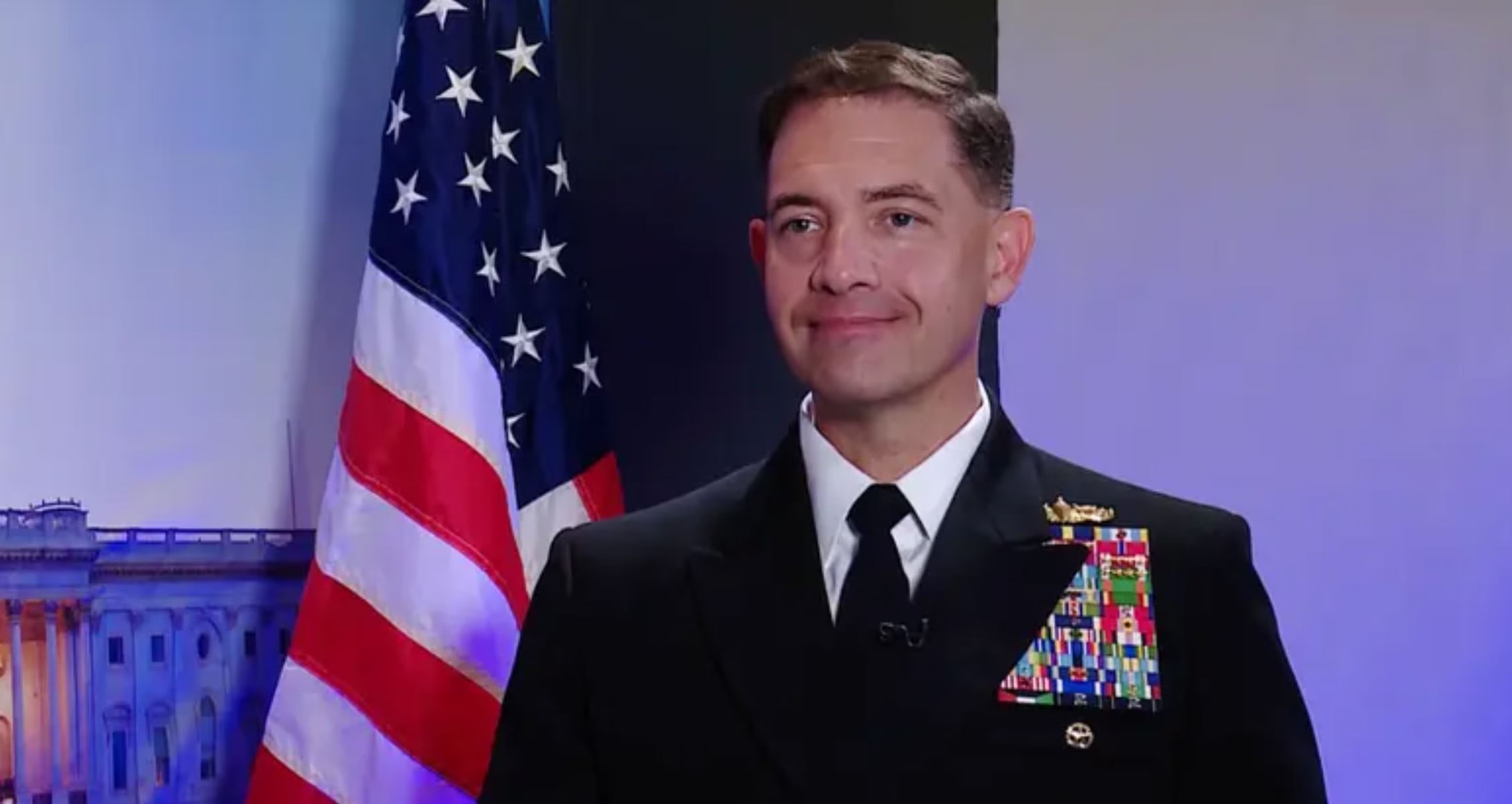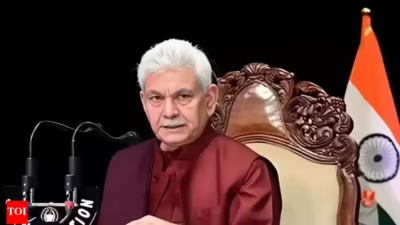Trump Taps Vice Admiral Brad Cooper to Lead CENTCOM

President Donald Trump has nominated and the Senate has confirmed Vice Admiral Charles “Brad” Cooper II to take command of U.S. Central Command (CENTCOM), placing a seasoned naval officer in one of the most geopolitically complex and volatile theaters of U.S. military operations. Cooper will become only the second Navy officer in CENTCOM’s 40-plus-year history to hold the position, a post traditionally reserved for senior Army or Marine Corps generals.
CENTCOM’s area of responsibility spans 21 nations, covering the Middle East, Central Asia, and parts of South Asia. This is where national security rubber meets the road—where conflicts aren’t hypothetical and where regional tensions can escalate in the time it takes to fire a drone.
CENTCOM has overseen U.S. military operations in Iraq, Afghanistan, Syria, and continues to lead counterterrorism missions while countering growing threats from Iran, proxy militias, and increasingly aggressive regional powers.
Commanders are typically rotated every three to four years, giving incoming leadership a chance to reassess strategies in light of shifting conditions. Cooper will replace Army Gen. Erik Kurilla, who took command in 2022 and is expected to retire later this year.
Brad Cooper: Sailor, Diplomat, Strategist
Vice Admiral Cooper is no stranger to the region or the responsibilities of command. A 1989 graduate of the U.S. Naval Academy, Cooper has spent decades operating in and around CENTCOM’s maritime lanes. He previously commanded U.S. Naval Forces Central Command, the Fifth Fleet, and Combined Maritime Forces—a 38-nation naval coalition based in Bahrain.
His leadership during tense encounters in the Arabian Gulf earned him a reputation for being measured but firm. Under Cooper, the Navy maintained a consistent presence in the Strait of Hormuz, deterring Iranian harassment of commercial shipping and keeping maritime trade lanes secure. Cooper has also served as Chief of Legislative Affairs for the Navy, giving him firsthand experience navigating both military operations and Washington politics—an increasingly vital skill in today’s national security environment.
Academically, he holds a master’s degree in strategic intelligence from the National Intelligence University and has completed senior-level coursework at both Harvard and Tufts. That’s not fluff—it means he’s equally comfortable in the Situation Room as he is on the bridge of a guided-missile destroyer.
Confirmation and Strategic Timing
The Senate confirmed Cooper’s nomination on June 30, 2025. That swift confirmation reflects bipartisan confidence in his leadership at a moment when CENTCOM’s mission is rapidly evolving. U.S. posture in the region is shifting from large-scale counterinsurgency toward a mix of targeted operations, deterrence missions, and coalition building.
President Donald Trump has nominated and the Senate has confirmed Vice Admiral Charles “Brad” Cooper II to take command of U.S. Central Command (CENTCOM), placing a seasoned naval officer in one of the most geopolitically complex and volatile theaters of U.S. military operations. Cooper will become only the second Navy officer in CENTCOM’s 40-plus-year history to hold the position, a post traditionally reserved for senior Army or Marine Corps generals.
CENTCOM’s area of responsibility spans 21 nations, covering the Middle East, Central Asia, and parts of South Asia. This is where national security rubber meets the road—where conflicts aren’t hypothetical and where regional tensions can escalate in the time it takes to fire a drone.
CENTCOM has overseen U.S. military operations in Iraq, Afghanistan, Syria, and continues to lead counterterrorism missions while countering growing threats from Iran, proxy militias, and increasingly aggressive regional powers.
Commanders are typically rotated every three to four years, giving incoming leadership a chance to reassess strategies in light of shifting conditions. Cooper will replace Army Gen. Erik Kurilla, who took command in 2022 and is expected to retire later this year.
Brad Cooper: Sailor, Diplomat, Strategist
Vice Admiral Cooper is no stranger to the region or the responsibilities of command. A 1989 graduate of the U.S. Naval Academy, Cooper has spent decades operating in and around CENTCOM’s maritime lanes. He previously commanded U.S. Naval Forces Central Command, the Fifth Fleet, and Combined Maritime Forces—a 38-nation naval coalition based in Bahrain.
His leadership during tense encounters in the Arabian Gulf earned him a reputation for being measured but firm. Under Cooper, the Navy maintained a consistent presence in the Strait of Hormuz, deterring Iranian harassment of commercial shipping and keeping maritime trade lanes secure. Cooper has also served as Chief of Legislative Affairs for the Navy, giving him firsthand experience navigating both military operations and Washington politics—an increasingly vital skill in today’s national security environment.
Academically, he holds a master’s degree in strategic intelligence from the National Intelligence University and has completed senior-level coursework at both Harvard and Tufts. That’s not fluff—it means he’s equally comfortable in the Situation Room as he is on the bridge of a guided-missile destroyer.
Confirmation and Strategic Timing
The Senate confirmed Cooper’s nomination on June 30, 2025. That swift confirmation reflects bipartisan confidence in his leadership at a moment when CENTCOM’s mission is rapidly evolving. U.S. posture in the region is shifting from large-scale counterinsurgency toward a mix of targeted operations, deterrence missions, and coalition building.
Cooper’s experience aligns with this transition. His maritime command background suits a new CENTCOM focus that emphasizes freedom of navigation, strategic deterrence, and international maritime cooperation. His selection signals the Trump administration’s intent to rebalance CENTCOM’s efforts—placing greater weight on naval power projection while retaining the flexibility to respond to crises on land when necessary.
This isn’t a return to days when carrier strike groups parked indefinitely off the Iranian coast, but it does mean CENTCOM will likely operate with a sharper maritime edge.
VADM Brad Cooper, the nominee for #CENTCOM Commander, during a congressional hearing, stated that the #US military defense equipment to the #Kurdistan #Peshmerga forces has been delayed and he pledged to resolve this issue. pic.twitter.com/2JjdazGIJ1
— Ministry of Peshmerga (@KRG_MOPE) June 29, 2025
What This Means for the Future
The appointment of a Navy admiral to lead CENTCOM is more than a personnel change—it’s a directional shift. Cooper represents a new phase in U.S. military engagement in the Middle East: one that trades sprawling land wars for precision, deterrence, and international coordination.
At the same time, challenges remain. Iranian-backed militias still pose a threat to U.S. personnel in Iraq and Syria. The Houthis continue to target Red Sea shipping lanes. Terror groups remain embedded in places like Yemen and Somalia. And broader strategic competitors like China and Russia are steadily increasing their influence across the region.
Cooper’s job will be to navigate all of it—keeping pressure on adversaries, shoring up alliances, and ensuring that CENTCOM’s deterrent capability remains credible. It’s not the kind of assignment that comes with clear-cut wins. It’s the kind of job where success is measured by the crisis that didn’t happen.
Bottom Line
Vice Admiral Cooper is stepping into one of the most consequential roles in the U.S. military at a pivotal time.
His confirmation as CENTCOM commander represents a strategic pivot and a vote of confidence in naval leadership’s ability to manage complex, fast-moving threats across land, air, and—critically—sea.
Cooper’s record suggests he’s the kind of leader who doesn’t blink when the stakes are highest. That’s not just good timing—it’s good judgment.














